Vegetarianism is becoming increasingly popular, and this includes expectant mothers. So, is it safe for pregnant women to adopt a vegetarian diet? And if so, how can they ensure they’re getting all the necessary nutrients for themselves and their babies? Let’s find out!
1 Can Pregnant Women Be Vegetarian?
 Can Pregnant Women Be Vegetarian?
Can Pregnant Women Be Vegetarian?
It’s a common misconception that vegetarian diets lack the necessary nutrients for pregnant women. However, this is not the case. A vegetarian diet can provide all the essential nutrients for a pregnant woman and her developing baby, as long as it’s well-planned and includes a variety of foods.
Pregnant women can safely follow a vegetarian diet and may need to include some additional supplements. A well-balanced vegetarian diet should include a variety of fruits, vegetables, whole grains, legumes, nuts, and seeds, along with other important nutrients to ensure adequate nourishment for both mother and child.
2 Advantages and Disadvantages of a Vegetarian Diet During Pregnancy
Advantages
- According to Vinmec International General Hospital, vegetarian menus tend to be rich in fruits, vegetables, and fiber, which aid in better digestive function. This can help alleviate constipation, a common issue during pregnancy.
- Vegetarian foods are typically free of animal fats and lower in saturated fat, which helps maintain healthy cholesterol levels and reduces the risk of cardiovascular disease.
- The high fiber content in a vegetarian diet can assist pregnant women in managing their weight gain and regaining their pre-pregnancy figure more easily after giving birth.
 Regain Pre-Pregnancy Figure
Regain Pre-Pregnancy Figure
Disadvantages
One of the main concerns with a vegetarian diet during pregnancy is the potential for nutrient deficiencies. It’s crucial to carefully plan a vegetarian diet during pregnancy to ensure adequate nutrition for both mother and baby.
 Risk of Nutrient Deficiencies
Risk of Nutrient Deficiencies
3 Nutritious Vegetarian Diet for Pregnant Women
According to Vinmec International General Hospital, it’s crucial to ensure adequate nutrient intake during pregnancy for the well-being of both mother and fetus. A nutritious diet should include a balance of proteins, carbohydrates, healthy fats, vitamins, minerals, and other essential nutrients. Here’s how to achieve that on a vegetarian diet:
Protein
Pregnant women need approximately 75g of protein per day. Plant-based proteins are typically lower in fat and cholesterol, helping to reduce high blood pressure and the risk of cardiovascular disease. Good protein sources for vegetarians include:
- Fungi: Mushrooms, shiitake mushrooms, wood ear mushrooms, etc.
- Soy Products: Tofu, tempeh, soy milk, etc.
- Legumes: Beans, lentils, chickpeas, etc.
- Whole Grains and Cereals: Oats, quinoa, barley, etc., and products made from them.
- Nuts and Seeds: Almonds, walnuts, pumpkin seeds, sunflower seeds, etc.
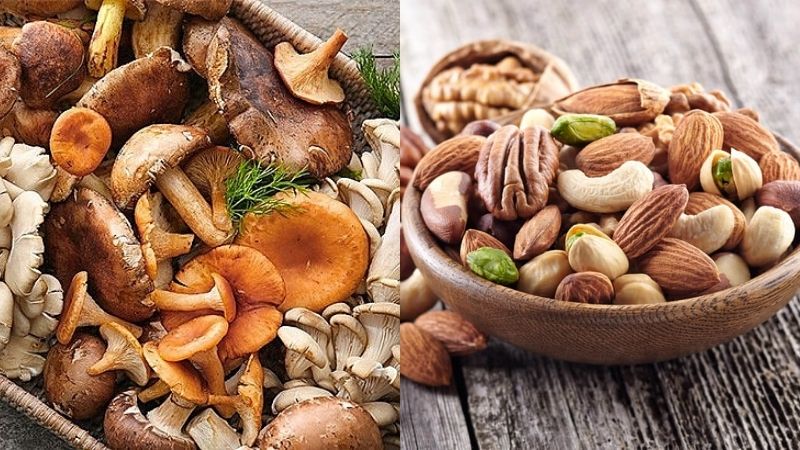 Protein from Mushrooms and Nuts
Protein from Mushrooms and Nuts
Calcium
Calcium is vital for the health of both mother and developing baby. A calcium-rich diet helps reduce the risk of pre-eclampsia and alleviate back pain, leg cramps, and joint pain. If calcium intake is insufficient, the body will draw calcium from the mother’s bones, leading to osteoporosis later in life. Good sources of calcium include:
- Dairy Products: Milk, yogurt, cheese, etc.
- Dark Green Leafy Vegetables: Spinach, kale, collard greens, etc.
- Sesame Seeds (Black Sesame Seeds): Rich in calcium and other minerals.
- Soybeans and Soy Products: Tofu, tempeh, soy milk, etc.
- Calcium-Fortified Foods: Breakfast cereals, orange juice, plant-based milk alternatives, etc.
Additionally, calcium supplements may be recommended by your doctor to ensure adequate intake.
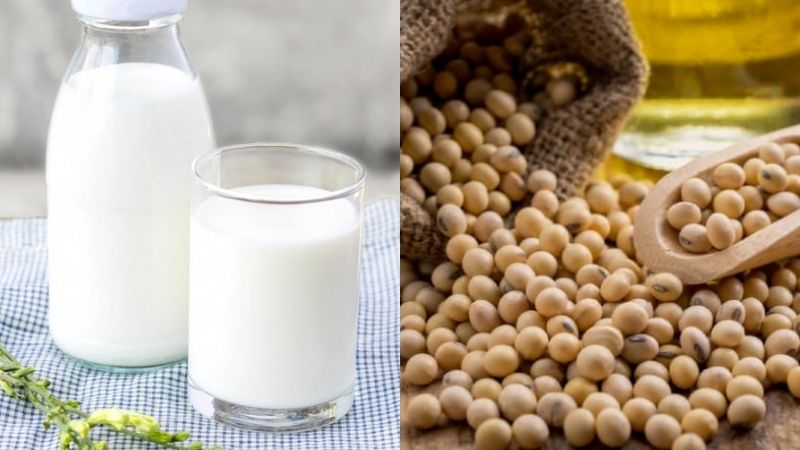 Calcium from Dairy and Soy
Calcium from Dairy and Soy
Healthy Fats and DHA
Healthy fats are crucial for the development of the baby’s brain, eyes, and immune system, as well as the mother’s overall health. Vegetarian diets may be lacking in these essential fats, which are typically found in oily fish and seafood. To compensate, include the following in your diet:
- Algae or Algal Oil: A good source of DHA.
- Eggs: Include the yolk, as it’s a source of healthy fats and DHA.
- Green Vegetables: Leafy greens, avocado, etc.
- Supplements: Consider taking a DHA supplement, especially if you don’t consume eggs or algae regularly.
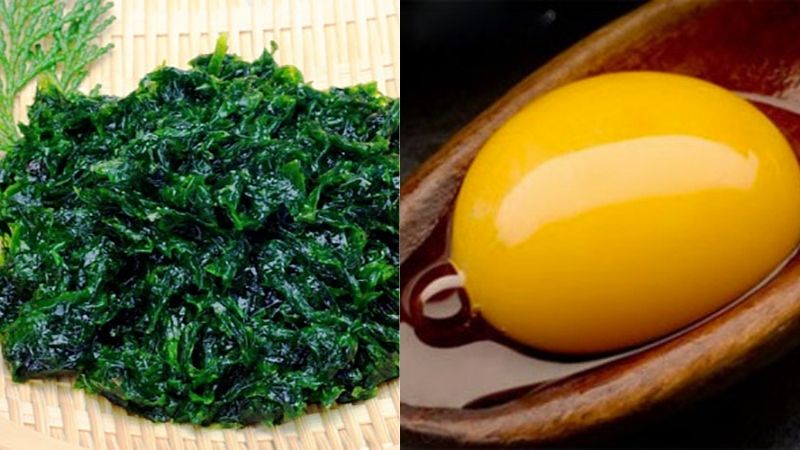 Healthy Fats from Eggs and Algae
Healthy Fats from Eggs and Algae
Iron
Pregnant women need twice as much iron as they did before pregnancy to support the increased blood volume and the development of the baby. Adequate iron intake helps prevent anemia and reduces the risk of preterm birth. Good sources of iron include:
- Spinach and Other Dark Green Leafy Vegetables
- Legumes: Peas, beans, lentils, chickpeas, etc.
- Fortified Cereals and Grains
- Iron Supplements: Your doctor may recommend taking iron supplements to ensure adequate intake.
The recommended daily iron intake during pregnancy is 27 mg, and it should not exceed 45 mg.
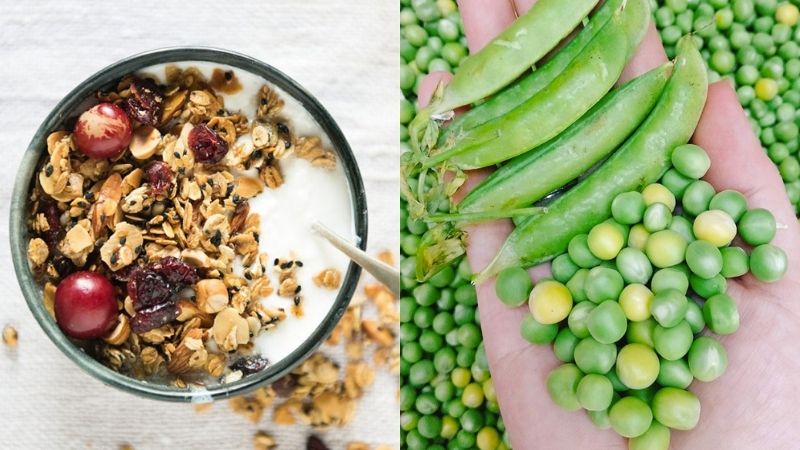 Iron from Peas and Leafy Greens
Iron from Peas and Leafy Greens
Folic Acid and Vitamin B12
Folic acid and vitamin B12 are essential for the baby’s neural tube development and overall growth. Deficiency in these vitamins can lead to neural tube defects and increase the risk of preterm birth. Include the following in your diet:
- Legumes: Lentils, chickpeas, beans, etc.
- Dark Green Leafy Vegetables: Spinach, kale, collard greens, etc.
- Cruciferous Vegetables: Broccoli, cauliflower, Brussels sprouts, etc.
- Eggs: Include the yolk, as it contains vitamin B12.
- Fortified Breakfast Cereals
- Vitamin Supplements: Take folic acid and vitamin B12 supplements as recommended by your doctor.
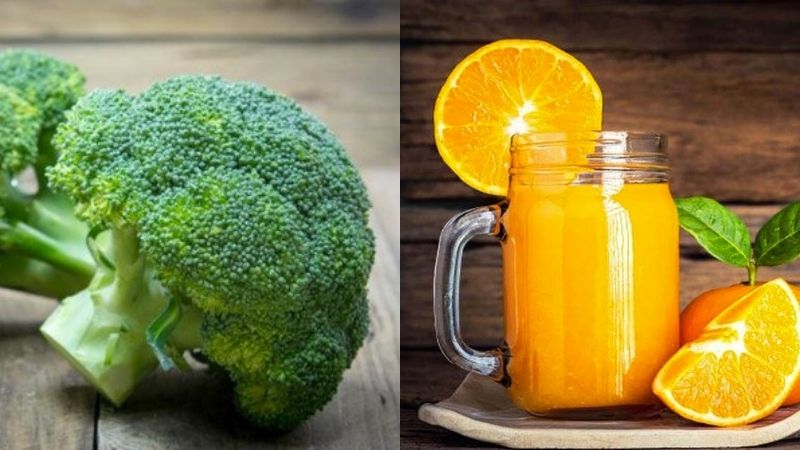 Folic Acid and Vitamin B12
Folic Acid and Vitamin B12
Iodine
Iodine is essential for the healthy development of the baby’s brain and nervous system, and it also supports the mother’s thyroid health. Adequate iodine intake during pregnancy can reduce the risk of miscarriage, stillbirth, and intellectual disabilities in the child. Include the following iodine-rich foods in your diet:
- Iodized Salt: Use iodized salt in cooking and seasoning.
- Dairy Products: Milk, yogurt, cheese, etc.
- Seafood: Seaweed, shrimp, cod, etc.
- Eggs and Egg Dishes
- Peas: Green peas, snow peas, etc.
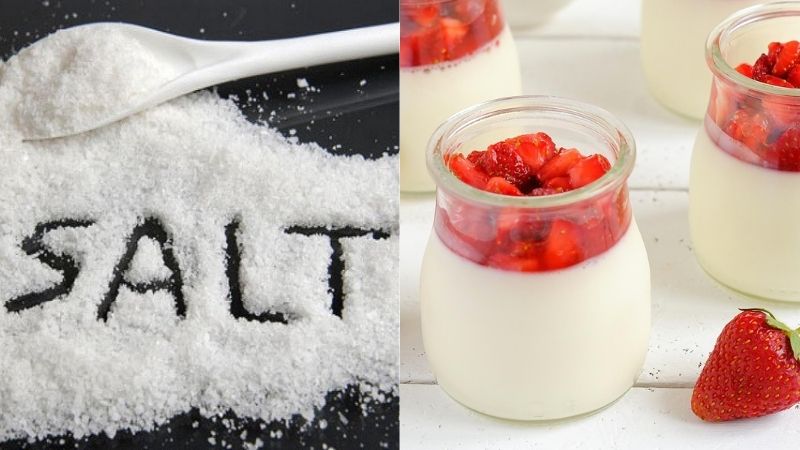 Iodine Sources
Iodine Sources
Zinc
Zinc is an essential mineral for both mother and baby, supporting immune function and wound healing. It also plays a role in brain development and energy production. Include the following zinc-rich foods in your diet:
- Whole Grains and Cereals: Oats, quinoa, barley, etc.
- Legumes: Chickpeas, lentils, peas, beans, etc.
- Dairy Products: Milk, yogurt, cheese, etc.
- Nuts and Seeds: Pumpkin seeds, hemp seeds, cashews, etc.
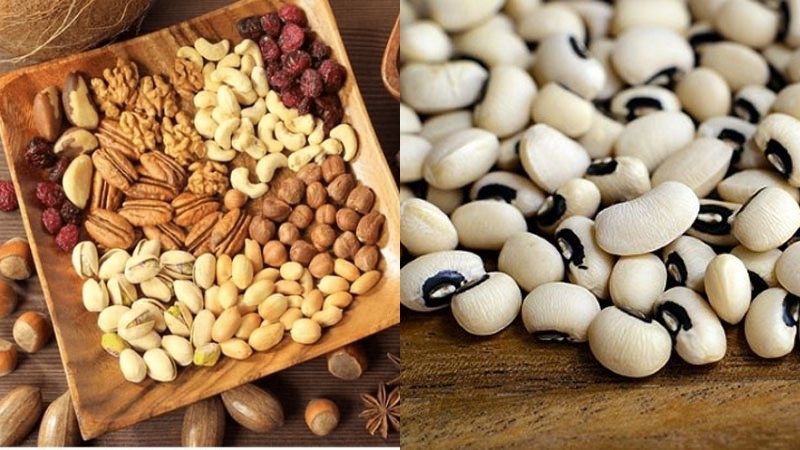 Zinc from Whole Grains and Legumes
Zinc from Whole Grains and Legumes
Vitamin D
Vitamin D is crucial for the development of the baby’s bones and teeth, and it also helps the mother absorb calcium from her diet. Include the following vitamin D-rich foods:
- Fortified Dairy Products: Milk, yogurt, cheese, etc.
- Egg Yolks: Include the yolk, as it contains vitamin D.
- Fortified Breakfast Cereals
- Fatty Fish: Salmon, sardines, etc., if you consume fish.
- Orange Juice and Fortified Plant-Based Milk Alternatives
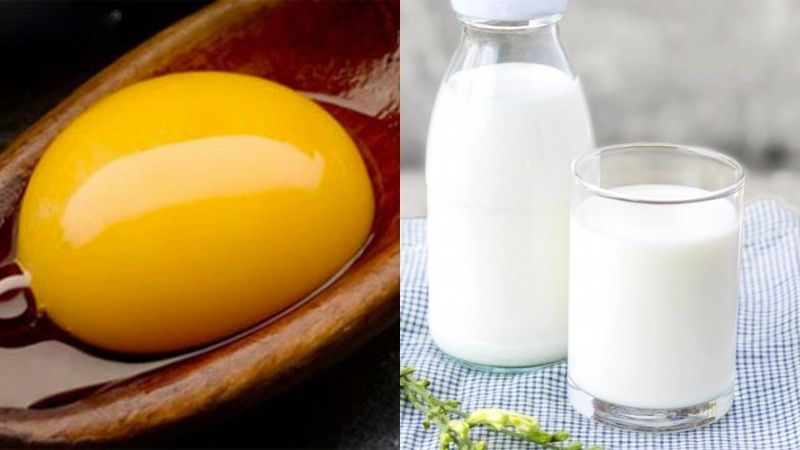 Vitamin D from Dairy and Eggs
Vitamin D from Dairy and Eggs
Potassium
Potassium is essential during pregnancy, as it helps regulate blood pressure, improves metabolism, and maintains heart rhythm and energy levels. Include the following potassium-rich foods in your diet:
- Legumes: White beans, kidney beans, lentils, etc.
- Green Leafy Vegetables: Spinach, kale, collard greens, etc.
- Cruciferous Vegetables: Broccoli, cauliflower, cabbage, etc.
- Dairy Products: Milk, yogurt, cheese, etc.
- Fruits: Bananas, oranges, apricots, etc.
- Dried Fruits: Prunes, raisins, etc.






























